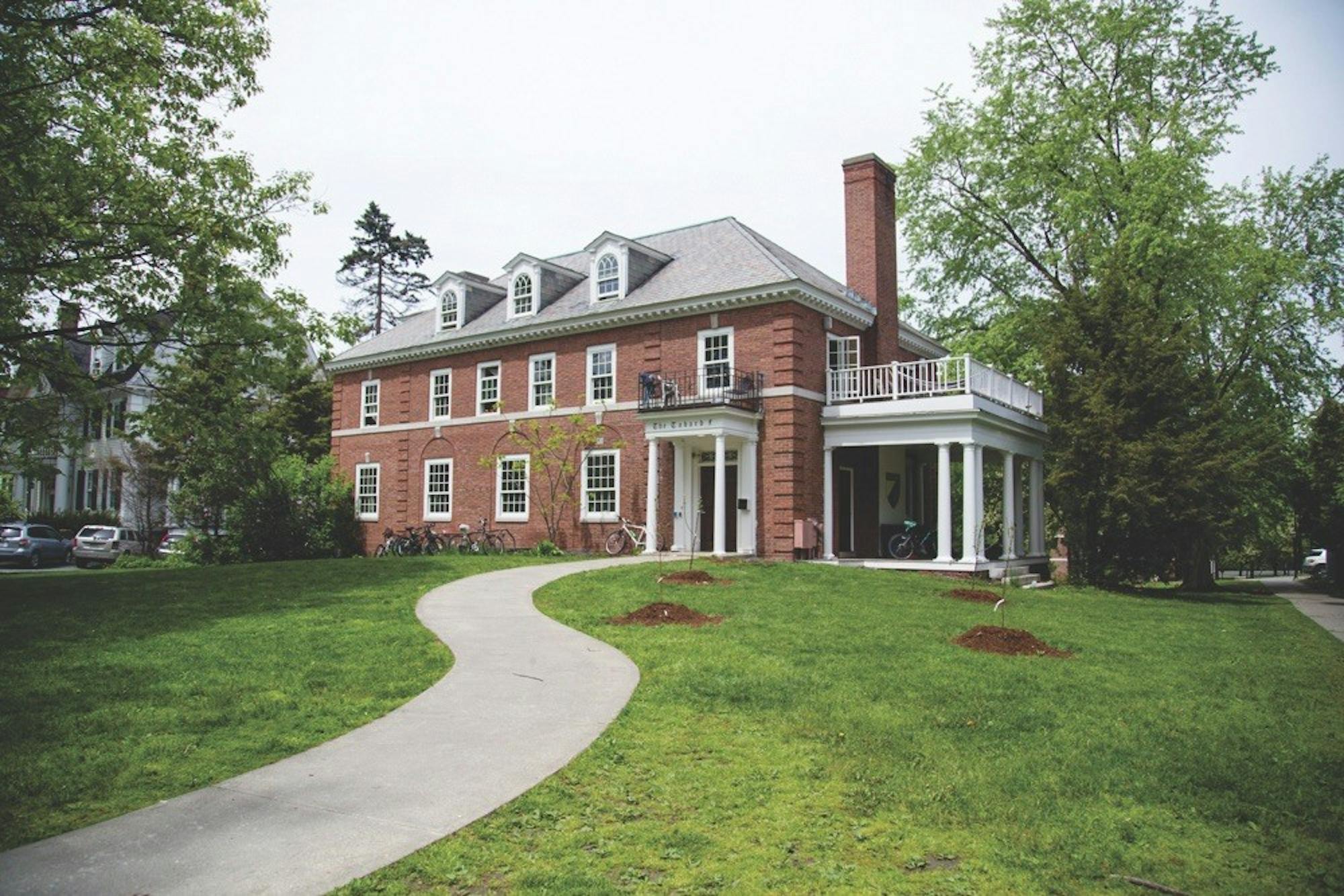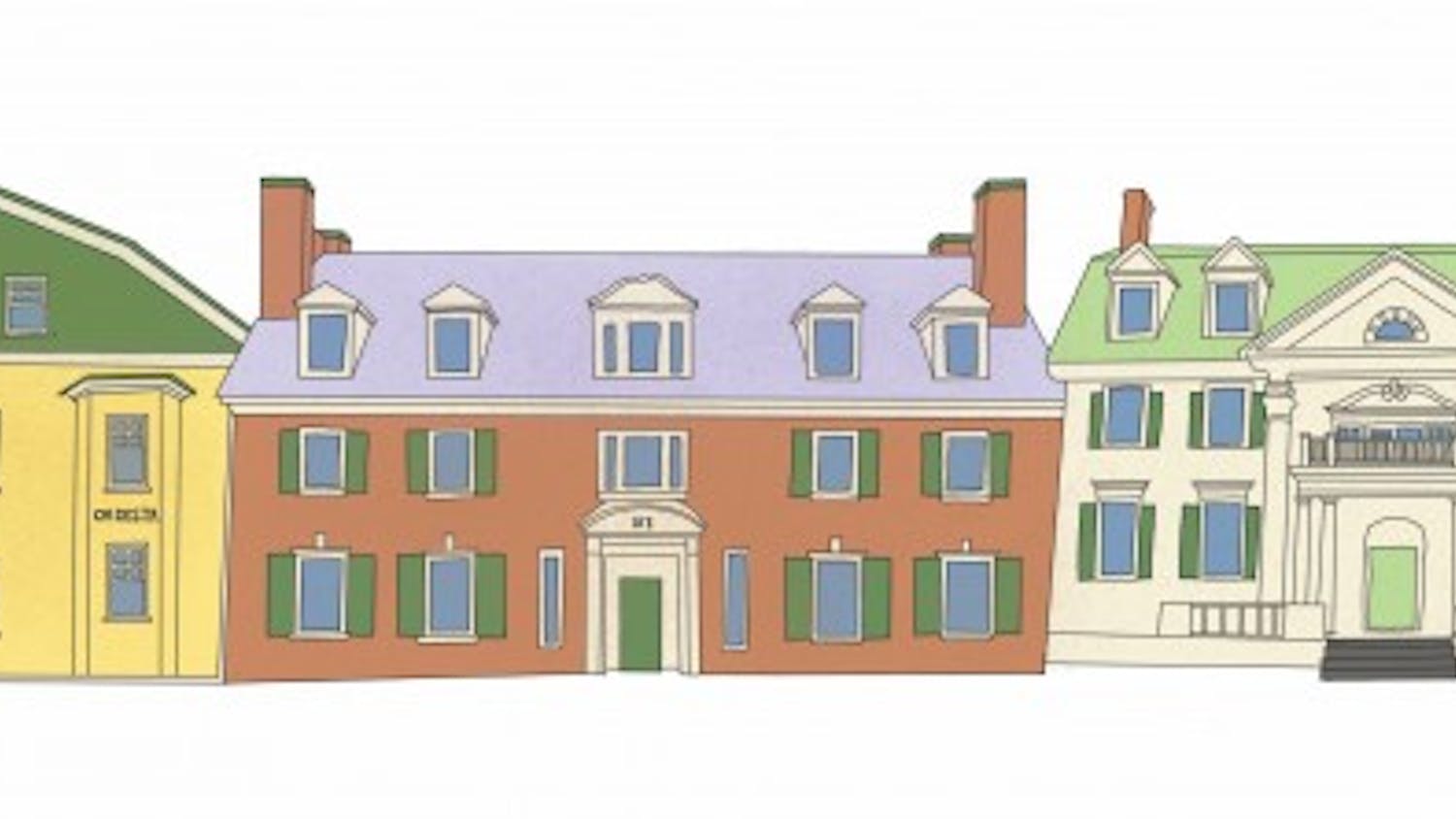It’s no secret that Greek life is prominent on Dartmouth’s campus. Enter any residential building, and I guarantee that you’ll find at least one “Animal House”-themed poster of John Belushi chugging Jack Daniels, perhaps an ode to the fact that the film was largely based on screenwriter Chris Miller’s ’63 experiences at a former Dartmouth fraternity. On a typical on-night, you’ll find groups of friends in frackets and dirty sneakers debating whether they will scope out the scene at another frat or head to Collis late night while crumpled cans of Keystones line the sidewalk.
But to say that Greek life is solely associated with community and fun nights full of pong and dancing would be to tell a one-sided story. Traditional Greek houses are not places that everyone feels comfortable in. However, there are communities at Dartmouth that aim to provide a comfortable space for those who feel uncomfortable in traditional Greek houses. These communities include gender-inclusive Greek houses — Alpha Theta, Phi Tau, and The Tabard — and co-ed undergraduate societies—Amarna and Panarchy.
Evan Barton ’20, who joined The Tabard during his sophomore summer, holds the common belief that Dartmouth’s social scene is heavily centered on traditional Greek houses. Because of Greek life’s prevalence on campus, Barton was soon able to notice some of the negative aspects of Greek life, such as hazing and exclusivity. After joining The Tabard, Barton recognized the immense positive impact that gender-inclusive Greek houses could have on one’s Dartmouth experience.
“It wholeheartedly changed my experience. Prior to being in Tabard, I feel like I didn’t have a place,” Barton said. “[After joining,] I had a space that chose me, instead of me choosing it.”
Moreover, Barton said that joining The Tabard gave him a community that he felt was previously missing from his Dartmouth experience.
“I found a very similar-minded group of people to my friends in high school, and that was what I was looking for here at Dartmouth, but I hadn’t found,” Barton said. “The Tabard was truly life changing in that regard,” he added.
Eduardo Corea-Dilbert ’20, who joined The Tabard during his sophomore fall, shared a similar opinion on the sense of community that he gained there. Corea-Dilbert found Greek life at Dartmouth to be confusing and hard to navigate at first. However, he was interested in the idea of Greek houses where the barrier of gender was broken and ultimately found a great community at the Tabard.
“As a freshman, the first thing that you want to do is find a community where you belong and establish your subset of friends. I feel like becoming a Tabard was finding that space for me — finding a place where I wanted to be, somewhere that I could always come back to, and somewhere I enjoyed being around. Not just the physical space, but also the people in the space,” Corea-Dilbert said.
Furthermore, Corea-Dilbert emphasized that gender-inclusive houses provide the siblingship that is associated with traditional Greek life without the barriers that can prevent some people from finding a comfortable community.
“I understand the enticing feeling and hype behind Greek houses. They can be very good some times for some people. [Greek houses] are another community where people can find where they feel like they belong. However, you can’t really ignore the facts about how these spaces can feel towards women or people of different sexualities or people of different gender identities. It’s a hegemony that can be broken down with gender-inclusive spaces,” Corea-Dilbert said.
Gender-inclusive Greek houses are not nearly as prevalent as traditional Greek houses at Dartmouth. However, some students gain exposure to gender-inclusive houses through the well-attended lingerie show that is held once a term at The Tabard. According to Barton, the lingerie show was started by queer men in Tabard in the late ‘90s and was originally intended to be a drag show.
“[The lingerie show] sort of morphed from a show that centers around drag to a show that centers around body positivity, sex positivity and performance art by anyone who feels comfortable to [perform] … People are very vulnerable in their performances, and I really appreciate that about [the show],” Barton said.
He added that the show is really impactful and makes The Tabard a more inclusive space.
Corea-Dilbert agreed that the lingerie show showcases body positivity, differing bodies and differing ways to represent one’s body. The show highlights The Tabard’s values of representation and inclusivity. Corea-Dilbert noted that some performances are especially impactful and important.
“Someone switched from male-presenting to female-presenting clothes, which was a very powerful way of talking about how you are still one body, but the way that you choose to present it can manifest itself in many different ways,” Corea-Dilbert said.
In addition to gender-inclusive Greek houses such as The Tabard, Dartmouth also has co-ed undergraduate societies, Amarna and Panarchy. The first opportunity for Dartmouth undergraduates to join a Greek house is during their sophomore fall. However, students can join Amarna as early as their freshman fall. Nathaniel Stornelli ’21, who has been a part of Amarna since their freshman fall, noted that quickly finding a community within Amarna was an essential part of their Dartmouth experience.
“[Amarna] was a lot of my support freshman year, and it was really invaluable. I don’t want to say that it’s not something I could have found in a Greek space, but it wasn’t something that I would have found in a Greek space that early on, so I was really lucky to have that,” Stornelli said.
Moreover, Stornelli highlighted the strong bond between members of Amarna.
“[The sense of community] is very, very strong. I think that’s because [Amarna] attracts people who have a harder time fitting into traditional Dartmouth spaces. We want to have community, and we want to have close friendships and almost familial bonds. We want to be together, and we know that we’re better together and stronger together,” Stornelli said.
If you ask Dartmouth students to list the reasons why they like Dartmouth, “the people” will surely be among the top answers. And there’s a good reason for that: Dartmouth students value community. The people you choose to surround yourself with will largely impact your Dartmouth experience, and those people can be found in many different spaces. However, one factor that certainly should not hinder your ability to find those people is your gender identity.
Stornelli summarized the importance of gender-inclusive social spaces.
“I think it’s so important to have spaces for people who are underrepresented. As a trans person, I find it absolutely invaluable to have a place where I’m not an exception — I’m inherently accepted and inherently welcomed. In general, Dartmouth needs that kind of energy. The world needs that kind of energy.”




